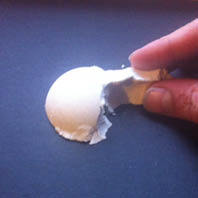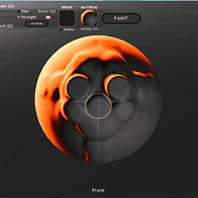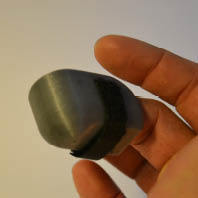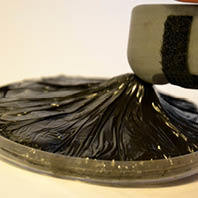Difference between revisions of "User:Emielgilijamse"
| Line 10: | Line 10: | ||
At this point especially interested in the "craft" in "digital craft', I've decided to interpret the human body as a toolkit. Focussing on the finger, which is giving us the ability to create forms and shape objects. | At this point especially interested in the "craft" in "digital craft', I've decided to interpret the human body as a toolkit. Focussing on the finger, which is giving us the ability to create forms and shape objects. | ||
Looking back in history, the hand and it's finger where one of the first and most essential tools used by man to shape and form. Especially looking at ceramics and sculptures, in which our hands and fingers are still essential. But in our digital age we've created different ways of creating, inspired by our manual methods, but different in possibilties and approach. | Looking back in history, the hand and it's finger where one of the first and most essential tools used by man to shape and form. Especially looking at ceramics and sculptures, in which our hands and fingers are still essential. But in our digital age we've created different ways of creating, inspired by our manual methods, but different in possibilties and approach. | ||
| − | Were the traditional ways of shaping materials like clay, direct contact with the material is inevitable, the modern modelingprocess takes place in a digital enviroment. Software like Mudbox and Sculptris gives you the possibilty to pull and push unlimited amound of mass, giving you endless possibilties, which are practically impossible using the traditional ways of shaping. | + | Were the traditional ways of shaping materials like clay, direct contact with the material is inevitable, the modern modelingprocess takes place in a digital enviroment. Software like Mudbox and Sculptris gives you the possibilty to pull and push an unlimited amound of mass, giving you endless possibilties, which are practically impossible using the traditional ways of shaping. |
I wanted to design and create an extension of the human finger, combining the traditional ways of shaping, inspired by the modern approach of modeling as seen in free-form modeling software. | I wanted to design and create an extension of the human finger, combining the traditional ways of shaping, inspired by the modern approach of modeling as seen in free-form modeling software. | ||
| + | |||
| + | What I wanted to achieve was to find a relevant example of a traditional technique using a modeling methode as used in modeling software. | ||
| + | |||
[[File:Icoontjes.jpg]] | [[File:Icoontjes.jpg]] | ||
| − | [[File:Traditioneel.jpg]] [[File:Sculptris.jpg]] [[File:Vingerdop2.jpg]] | + | |
| + | |||
| + | [[File:Traditioneel.jpg]] [[File:Sculptris.jpg]] [[File:Vingerdop2.jpg]] [[File:Vingerdoptest.jpg]] | ||
Revision as of 17:44, 13 September 2017
Digital Craft: Practice Q9 "How to be human"
"On the body"
Project 1: Exploring bespoke technologies as remediation, adaptions or extensions of the human body
At this point especially interested in the "craft" in "digital craft', I've decided to interpret the human body as a toolkit. Focussing on the finger, which is giving us the ability to create forms and shape objects. Looking back in history, the hand and it's finger where one of the first and most essential tools used by man to shape and form. Especially looking at ceramics and sculptures, in which our hands and fingers are still essential. But in our digital age we've created different ways of creating, inspired by our manual methods, but different in possibilties and approach. Were the traditional ways of shaping materials like clay, direct contact with the material is inevitable, the modern modelingprocess takes place in a digital enviroment. Software like Mudbox and Sculptris gives you the possibilty to pull and push an unlimited amound of mass, giving you endless possibilties, which are practically impossible using the traditional ways of shaping. I wanted to design and create an extension of the human finger, combining the traditional ways of shaping, inspired by the modern approach of modeling as seen in free-form modeling software.
What I wanted to achieve was to find a relevant example of a traditional technique using a modeling methode as used in modeling software.




